Opening with Oppenheimer seems to be the only way to start an article on India’s wild censorship tales. While it is normal to celebrate and sympathize with a man who invented the largest impacting tool for mass genocide ever recorded, it is however disturbing to see a nude woman on screen. Following this sober ideal regarding the dignity of women, the Central Board for Film Certification (CBFC) covered Florence Pugh’s nakedness with a CGI black dress, rescuing the nation from obscenity, just in time for the Manipur Kuki women’s gut-wrenching sexual assault video to make its rounds freely around the internet.
Desperately Seeking Sexual Freedom

If Oppenheimer’s censorship appears superfluous or even childish, I’m sad to inform you that we’re past the era of truly fascinating censorship in India since the untimely departure of CBFC Chairman Pahlaj Nihalani.
Nihalani first rose to fame through his now enshrined words: “lady oriented,” when commenting about the film, Lipstick Under My Burkha. The dangerous themes portrayed in the film of women having sexual desires, professional ambitions or simply needing to be an unbound creature in society were captured and pointed out by Nihalani’s sharp eyes. India’s reputation as the “land of the Kamasutra,” in addition to its population size – proves ironic when we consider the country’s paranoia around discussing sex.
However, being the egalitarian Mr Nihalani was, he also critiqued the otherwise critically acclaimed Aligarh – which told the real-life story of an endearing, Marathi poetry-loving, Lata Mangeshkar listening, sensitive college professor, and the humiliating trials he had to face on account of his homosexuality. Leading ultimately to a soul-stirring death, days before the legitimization of homosexuality in India. The CBFC considered this film inappropriate to be discussed with a teenage audience since it is well-known that Indians transform into homosexuals only after the age of nineteen.
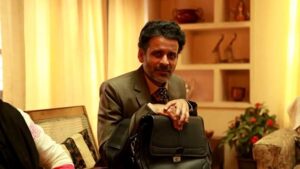
Talking of teachers, 2015 also saw the release of the film Haraamkhor, co-produced by a certain Gurneet Monga, also known as the producer of the Oscar-winning documentary, The Elephant Whisperers. The film tells of the delicate relationship between a teacher and his student seen through the eyes of three teenage boys. The dialogues, situations and sentiments expressed in the film are ones that the middle-class or lower-middle-class Indian is keenly aware of as it breathes on early childhood fascinations and reminds of the simple relationships that are borne out of pure innocence but can often be misconstrued by a media intoxicated audience. However, CBFC found several problems starting from the film’s title to its subject being objectionable to the Indian audience.
In The Name of God
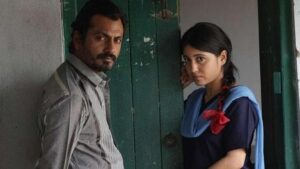
Film censorship on religious grounds is unfortunately a largely comical exercise in this country. Unfortunately, because, of being hailed as a spiritual refuge and having the chance to house vibrant traditions, beliefs and histories, India is in a prime space to don the role of a truly impactful thought leader. In the age of social media, one may value appearances and well-presented narratives up to a point. But sooner or later truth engulfs one’s senses and authenticity returns as a rare and priceless commodity.
The winter of 2014 saw one such discomfort with truth. Aamir Khan’s film PK dropped in theatres and all hell broke loose. The USP of this film is that it never tries to guide. It merely asks questions in the logical sequence of things. PK did a superb job of ‘show don’t tell.’ And see people did.
The film was quickly touted as offensive to Hindu sentiments even though it explicitly made a point, at the cost being obvious, to include other religions and by extension all religions. There is a scene where the alien chases after a man dressed as Lord Shiva mistaking him for the actual God. This scene particularly unsettled viewers. But here’s the catch.
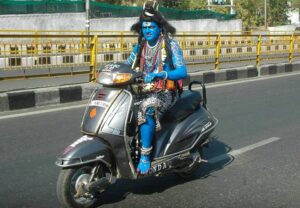
This is a very real phenomenon. People dress up as divine figures to earn a living simply because they know that Indians are indoctrinated to see them as unmissable if not outright holy. This is a blatant example of how we place our belief in the form and not the substance.
ParliaMental
Despite these many frivolous or overtly conservative approaches that the censor board may have displayed, the keen observer knows that there is, in fact, a method to this madness.

Take, for example, Udta Punjab, a film that broached the very current and urgent topic of drug abuse in Punjab. For decades promising lives have been ruined, the youth squandered and the security machinery made a fool of. If this isn’t the kind of topic that the masses need to be made aware of through a powerful medium like cinema, then what is?
However, the CBFC felt differently. It made several complaints against the film including claims that the film had been funded by the Aam Aadmi Party to show Shiromani Akali Dal (then a part of NDA) – led – Punjab in a bad light.
The film was ordered a total of 94 cuts. It was released with one cut. The court ruled that dialogue and lyrics with explicit words should be permitted because a film is a work of art, which “should be viewed in its entirety”. Plus, “CBFC should only certify, not censor. The public is the biggest censor. CBFC doesn’t need to censor,” the judge reiterated. Huzzah, indeed.
Not everyone is so lucky though. The documentary on the 2012 Delhi gang rape case entitled India’s Daughter was stopped from being broadcasted after a stay order from the court due to ‘perceived negative sentiments’.
The documentary undertook the difficult task of recording what the rapists felt about their actions and how their mind works. The piece was seminal in capturing the mindset of criminals with such high criminal intent. Giving us a chance to introspect and rectify them as a nation.
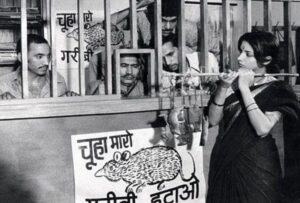
Similar opposition awaited Ram Ke Naam: which talked of the events leading to the demolition of the Babri Masjid and even won the National Award for Best Investigative Documentary. Not to mention the very recent BBC Documentary, India: The Modi Question, which dealt with Prime Minister Narendra Modi’s role in the 2002 Gujarat Riots – which was blocked invoking emergency laws, because knowledge is power, folks. And power is evil.
Speaking of Emergency, it is naïve to imagine that blatant censorship measures only happen during the present regime. Films such as Aandhi (1975) and Kissa Kursi Ka (1977) were banned by the Congress government because they talked of the Emergency; while Garam Hawa (1973), an acclaimed classic, was held up for eight months by the censors. It depicted a Muslim family during the Partition.
The Point of Exception
As citizens of a democracy, it is pertinent to note where the authorities draw the line and where ethical sentiments do. Adult entertainers Mastizaade and Kya Super Kool Hain 3 – famous for their sleazy, provocative, tasteless and creepy sexual offerings – released during the same time around the notorious Lipstick Under My Burkha and Udta Punjab. However, the board had little to no objection regarding these openly problematic films, Nihalani ji claiming he is shouted at when he does censor and is shouted at when he doesn’t. Feels familiar to Ted Yoho’s having a daughter defence: out of context.
Further, item numbers objectifying women’s bodies never hear as much a squeak from the censor boards whether they are modern tales of equating women with tandoori chicken in Fevicol Se or explicitly promoting sexual depravity while championing illiteracy with Gandi Baat. All of these are culturally accommodated, somehow, even with all the non-vegetarianism, pun intended. Going back to the 80s and 90s will prove equally traumatizing if not more with refined gems such as Khada Hai Khada Hai, Main Laya Hoon Chuha Apna, Yeh Maal Gaadi Tu Dhakka Laga, the list goes on.
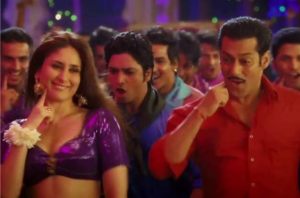
This brings us to the last query of the day. What rules guide censorship in India? Who decides and what is permitted?
Article 19 (1) of the Constitution talks about our rights which include the right to freedom of speech and expression. However, we have such fantastically crafted laws that they offer the bait of protection and the convenience of loopholes all in one.
While Article 19 (1) gives, its immediate follow-up, Article 19 (2) takes; stating: “Nothing in sub-clause of clause (1) shall affect the operation of any existing law, or prevent the State from making any law, in so far as such law imposes reasonable restrictions on the exercise of the right conferred…” Here the words “reasonable restrictions” from the ambit of the loophole. Taken broadly it can encompass “any critical writing, political statement, or cultural expression.”
Section 295A of the Indian Penal Code, 1860 provides for punishments on deliberate outrage of religious sentiments and is often used for lawsuits based on hurt sentiments of a few. The section is useful for arresting without a warrant on any frivolous ‘offended’ grounds that one may please.
Lastly, Section 66A of the Information Technology Act provides for catching you for private offences in case you’ve escaped the public nets. It provides punishment for sending “offensive messages through communication service, etc.” It is these loosely defined terms like ‘offensive messages’ that pave the way for customized arrests. Section 66A was deemed unconstitutional by the Supreme Court in 2015 but miraculously continues to be invoked in arrests.
When a body of authority censors, whether at schools, in media productions, in social etiquette or literary tastes – it speaks of two possible reasons: a) the more innocent reason – it’s unprecedentedly harmful or b) the more malicious one – it contains information about the authority that they would rather you didn’t know. Questions like what made a dehumanizing law like Section 377 stay afloat well into the 21st century or why was the banning of Triple Talaq a religious issue first and a sexism issue later – are questions we need to ask as appointees of lawmakers. Giving someone the power to drive your life means they’re answerable, they’re accountable for how they treat you. Just like patriotism demands love from one’s citizens, shouldn’t citizens demand similar love from their country too?

